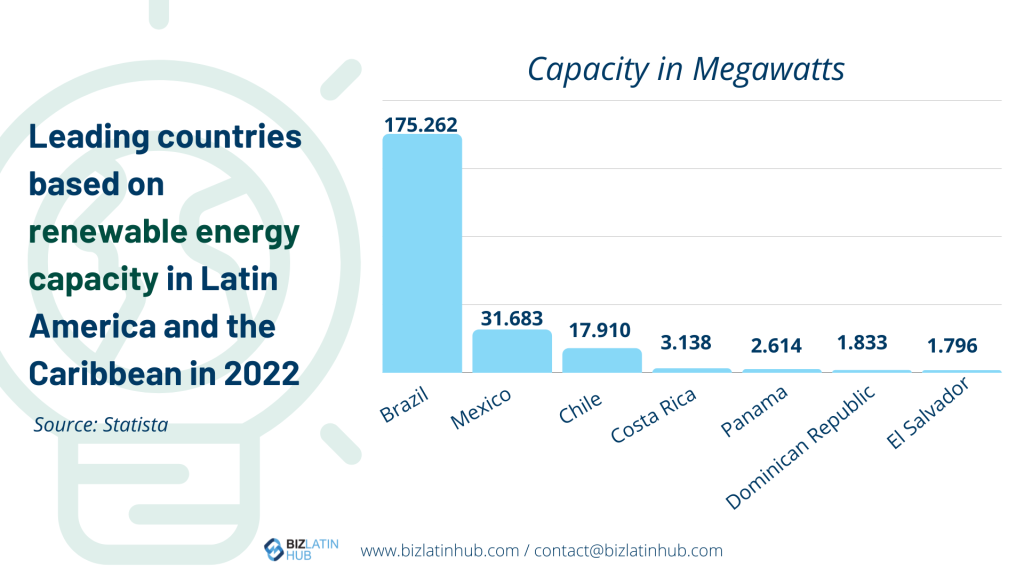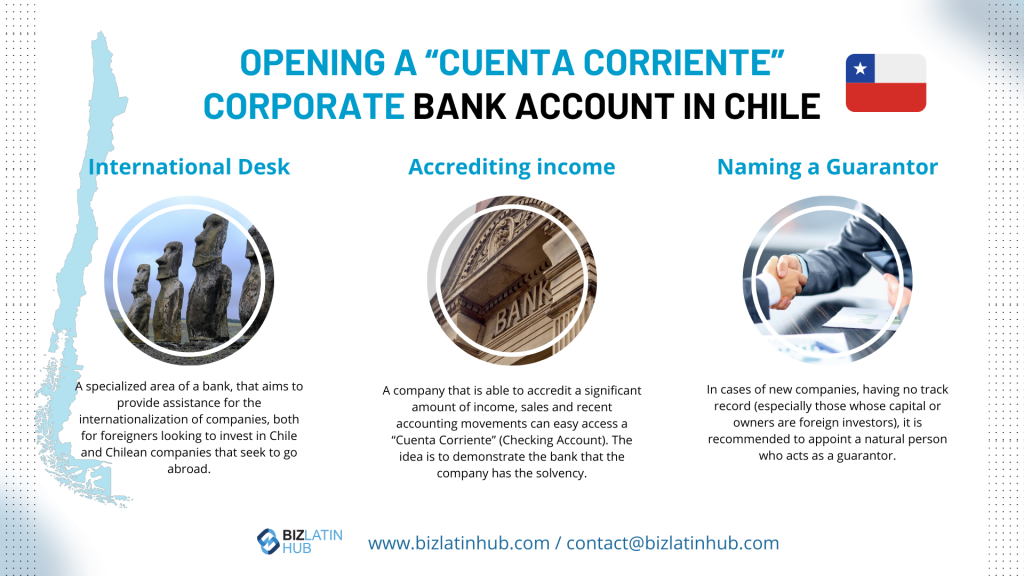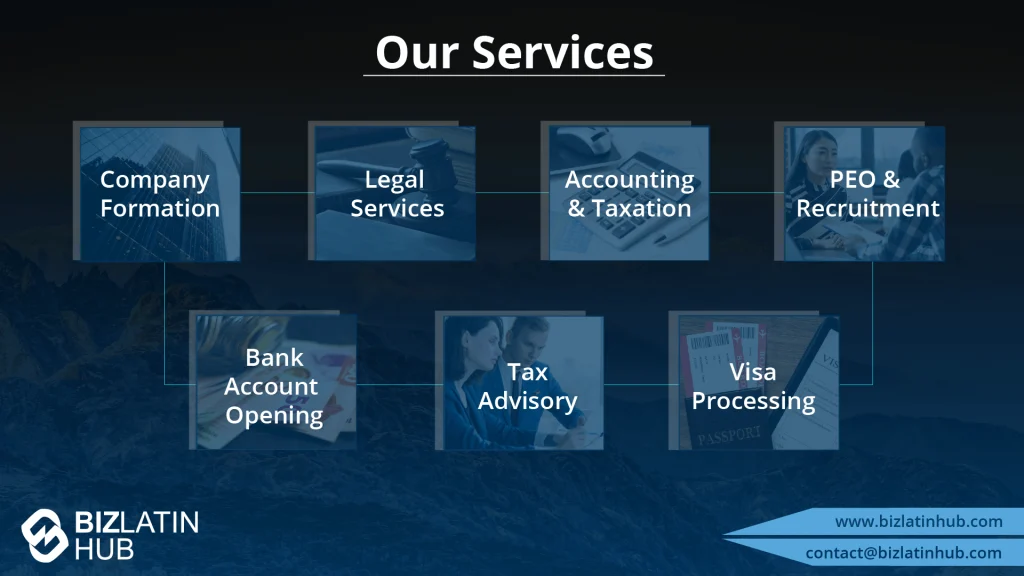Nestled along the western edge of South America, Chile stands as a beacon of economic stability and innovation in the Latin American region. Its long and narrow territory stretches along the Pacific coast; it has a population of about 19 million people and a GDP of about $300 billion. Chile’s economic landscape has a market-oriented economy that relies heavily on primary activities such as agriculture, mining, and fishing.
Chile’s economy has boomed in recent decades due to sound macroeconomic policies, trade openness, and structural reforms. It has reduced poverty and inequality while improving social indicators. Today, it’s seen as a symbol of South American development, as it offers a fantastic quality of life, especially in Santiago, its capital city.
As a result of this economic growth, different agents, such as foreign investors and companies, have become more interested in entering this market. Topics like company formation agent in Chile are trending for a good reason, and if you’re one of those people, this article is for you. Let’s take a look at some key aspects of Chile’s economy:

Economic Stability and Resilience
With a diverse economy and commitment to progressive policies, Chile has charted a dynamic course that continues to capture the attention of investors, entrepreneurs, and economists alike.
Chile’s reputation as one of Latin America’s most economically stable nations is well-earned. It’s the result of sound macroeconomic policies and other factors. The country has navigated global economic fluctuations with remarkable resilience, and its prudent fiscal policies and solid regulatory framework have contributed to sustained growth. This stability has made Chile an attractive destination for foreign investment and a model for economic management.
Sound macroeconomic policies
Chile has a credible and transparent fiscal and monetary framework that helps to maintain macroeconomic stability and fiscal sustainability. It has a structural fiscal rule limiting public spending based on the long-term trend of government revenues, a sovereign wealth fund accumulating surpluses, and an independent central bank targeting inflation.
These policies have enabled Chile to cope with external shocks, such as the commodity price cycles, the global financial crisis, and the COVID-19 pandemic, and to preserve its access to international financial markets.
Export-Oriented Economy
A significant pillar of Chile’s economy is its export-oriented approach. The nation is a major global player in the export of copper, accounting for a substantial portion of the world’s copper production. This resource-driven foundation has allowed Chile to establish a solid economic base while diversification efforts into other sectors, such as agriculture, forestry, fisheries, and renewable energy, have further fortified its economic resilience.
Its multiple Free Trade Agreements with 64 countries help diversify its export markets and increase Foreign Direct Investment and Technology Transfer.
Innovation and Technological Advancement
Chile’s commitment to innovation is evident in its pursuit of becoming a regional hub for technology and entrepreneurship. Santiago, the capital city, has evolved into a bustling center for startups and innovation-driven enterprises. Government-backed initiatives, coupled with vibrant support networks and favorable regulations, have nurtured an environment conducive to innovation, fostering the growth of technology-driven industries.
Foreign Investment and Trade Relations
Chile’s open-market policies and numerous free trade agreements have propelled its international trade relations. The country’s favorable business climate has attracted foreign investors seeking a secure and lucrative environment.
Its global trade agreements encompass markets in Asia, Europe, North America, and beyond. These agreements have facilitated the flow of goods and services, boosting Chile’s global economic integration.

Sustainable Development and Renewable Energy
As the world focuses on sustainability, Chile has harnessed its natural resources to become a leader in renewable energy. The country’s unique geographical features, including vast deserts and strong ocean currents, have enabled the development of solar, wind, and hydroelectric power projects.
Chile’s transition to sustainable energy sources contributes not only to environmental conservation but also to energy security.
It is implementing a Green Transition Strategy, which aims to achieve 70% renewable energy generation by 2030 and 100% by 2050 as part of its Sustainable Development and Renewable Energy initiatives. This is added to its initiatives to promote hydrogen production, electric mobility, and circular economy.
Challenges and Opportunities of Chile’s Economic Landscape
While Chile’s economic journey is impressive, challenges persist. Despite economic growth, income inequality underscores the need for social policies that ensure shared prosperity. Additionally, addressing water scarcity, enhancing educational quality, and tackling regulatory complexities remain on the agenda.
Chile’s economic landscape is a testament to its adaptability, resilience, and strategic vision. From its solid foundation in mining to its embrace of innovation and renewable energy, Chile showcases the potential for a nation to evolve and thrive within a dynamic global economy. As Chile continues to refine its economic strategies and pioneer new avenues of growth, it stands as an inspiration to the region and the world.
Chile paints a picture of a nation that has successfully navigated challenges and capitalized on opportunities. The country’s stability, innovation, and commitment to sustainable growth exemplify how strategic planning and adaptability can shape a prosperous future.
Biz Latin Hub can help you understand Chile’s economic landscape
At Biz Latin Hub, we provide integrated market entry and back-office services throughout Latin America and the Caribbean, with offices in Santiago and Bogotá, as well as over a dozen other major cities in the region. We also have trusted partners in many other markets.
Our unrivaled reach means we are ideally placed to support multi-jurisdiction market entries and cross-border operations.
As well as knowledge about Chile’s economic landscape, our portfolio of services includes hiring & PEO, accounting & taxation, company formation, bank account opening, and corporate legal services.
Contact us today to find out more about how we can assist you in finding top talent or otherwise doing business in Latin America and the Caribbean.
If this article on Chile’s economic landscape was of interest to you, check out the rest of our coverage of the region. Or read about our team and expert authors.





